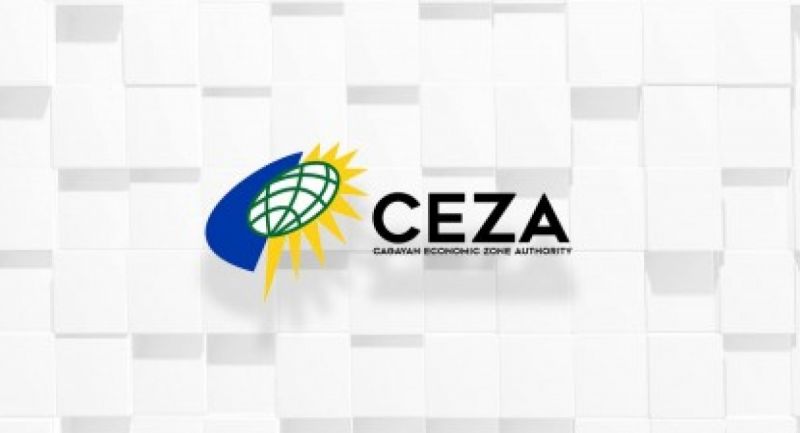Finex pitches resort to fintech

To promote financial inclusion in the country, the government, as well as the private sector, will need to tap financial technology (fintech), which is increasingly becoming more accessible now with digitization, to reach more Filipinos, the Financial Executives Institute of the Philippines (Finex) said.
“We all recognize that if we use technology then we can reach out to a greater population, we can reach out to Filipinos located in places where there are no banks or financial institutions. Yes, we do support that [using fintech], even the BSP [Bangko Sentral ng Pilipinas] is pushing for that as well,” Finex President Ma. Victoria C. Españo told the BusinessMirror at the sidelines of the Ayala-Finex Finance Summit on Wednesday at the Fairmont Hotel in Makati City.
She said one of the advocacies of Finex is furthering financial inclusion in the Philippines, and this is why it supports the call of the government for companies—especially micro, small and medium enterprises (MSMEs)—to tap fintech tools for their businesses.
KPMG Australia Associate Director for Data and Analytics Advisory Team, Ahsan Mehmood, who was also the keynote speaker during the summit, told the BusinessMirror that there is potential for the Philippines to be a regional hub for fintech-related activities, so long as it pushes forward in adapting to technological advancements presented by the region, as well as the world.
“There are some neighbors that can be looked at such as Vietnam. They have invested heavily in fintech-related start-ups and are seeing tremendous growth. I think the Philippines can definitely adopt a similar strategy and to grow in that sector and provide a regional hub for fintech-related activities and investments,” Mehmood said.
When asked whether the Philippine government’s move to encourage businesses to tap fintech is a step in the right direction, Mehmood explained that it posts a positive sign for the country since fintech is seen to be the future.
“And looking at the Asian market, there’s massive improvement in the amount of money that is spent on fintech, and the way the industry ecosystems are evolving, fintech is the future. And I think that’s definitely a positive sign,” he added.
Local business, he pointed out, would get a lot of value from the use of fintech, blockchain or even artificial intelligence, as it is one way of combating disruptions presented by the external environment.
“I think it would definitely be relevant considering the impact of regional or global industry reforms on the country itself. I think as an enabling technology, there is a lot of potential and a lot of value that businesses can achieve by using capabilities such as artificial intelligence… With the disruptive environment that we live in, if we don’t adapt these enabling technologies, then I think you face the threat of putting your business at risk. The message is quite simple: be it artificial intelligence, blockchain or automation, the message is, you need to have that right strategy to integrate or otherwise risk disruption,” he said.
Españo explained, meanwhile, that the Philippines has yet to fully adapt the use of artificial intelligence, for instance, since she sees that only a few big companies are open to using the said technology since it requires a lot of data.
“I think for the conglomerates, artificial intelligence is possible when you have data to analyze and gain insights. I think Philippine companies are still doing things on a manual basis. Maybe the big ones yes they are into it, because as I pointed out if you don’t have data in a structured way or capture it in a way that would be easily accessible then that’s going to be a challenge,” she said.
DOF’s pitch
Last month the Department of Finance (DOF) urged MSMEs to utilize electronic commerce (e-commerce) more, as the Duterte administration increases its efforts to put in place fintech tools to foster economic inclusion in the country.
Finance Secretary Carlos G. Dominguez III said the new fintech tools pitched by the government open a wide horizon of business opportunities for MSMEs, including peer-to-peer lending, equity crowd-funding, merchant and e-commerce finance and invoice finance.
Also during the same month, the Cagayan Economic Zone Authority (Ceza) reported that it is eyeing to bring in P3.6 billion of investments from fintech firms after the first blockchain operator in the region was granted a license to operate.
Ceza Senior Deputy Administrator Raymundo T. Roquero said the agency has given the green light to three fintech firms to operate in Cagayan’s economic zone (ecozone). The Ceza is allowing only 25 fintech companies to do business in the region for the year, and the first to be handed a license was the Golden Millennial Quickpay Inc. Ltd.
Golden Millennial was said to have invested $1 million in the Ceza for its start-up, along with two other firms engaged in cryptocurrency, or digital money. Its operations, he added, will require 5,000 workers.
In May the Monetary Board of the BSP approved the creation of a regulatory subsector for fintech companies as part of the broader goal to bring them into line as the economic landscape changes.
BSP Deputy Governor Chuchi G. Fonacier said the country’s central monetary authority seeks only to ensure a level and safe playing field for the fintech firms given their growing influence in the banking scene.
https://businessmirror.com.ph/finex-pitches-resort-to-fintech/
INVESTMENT OPPORTUNITIES
VISITOR COUNTER






 Users Today : 236
Users Today : 236 Users Yesterday : 1637
Users Yesterday : 1637 This Month : 17266
This Month : 17266 This Year : 65430
This Year : 65430 Total Users : 221315
Total Users : 221315 Views Today : 829
Views Today : 829 Total views : 2081011
Total views : 2081011
REPUBLIC OF THE PHILIPPINES
ABOUT GOVPH
Learn more about the Philippine government, its structure, how government works and the people behind it.



